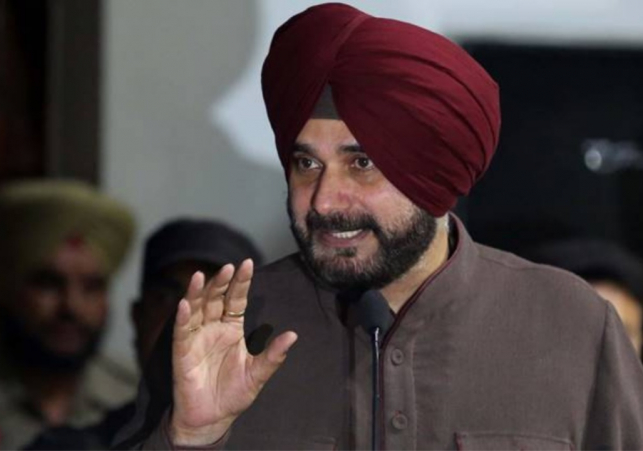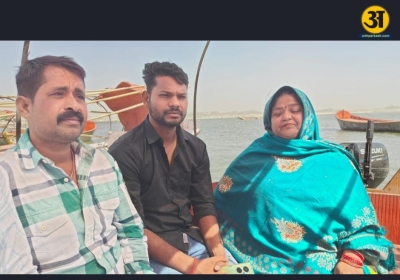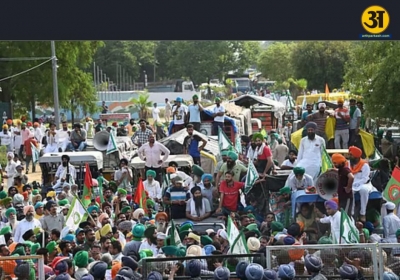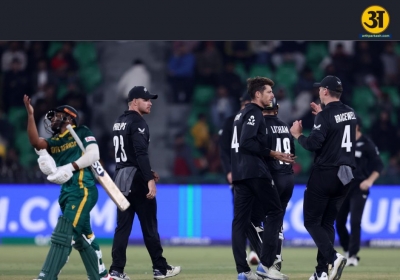
SC has given Navjot Singh Sidhu two weeks to respond
The SC has given Navjot Singh Sidhu two weeks to respond to the application.
The Supreme Court on Friday ordered Congress leader Navjot Singh Sidhu to respond to a suit alleging that his conviction in a 32-year-old road rage case should not have been based solely on the lesser charge of voluntarily causing harm. The apex court was hearing a case involving a review of the cricketer-turned-sentence politician's in the 1988 road rage case, which it handed down in May 2018.
Sidhu was found guilty of "voluntarily causing harm" to a 65-year-old man by the Supreme Court in May 2018, but he was spared jail time and just fined Rs 1,000.
In September 2018, the Supreme Court consented to hear a review petition submitted by the deceased's family members and issued a notice that was limited to the sentence's quantum.The case was heard by a bench consisting of Justices A M Khanwilkar and S K Kaul.
One of the petitioners, senior counsel Siddharth Luthra, said they have filed an application to broaden the scope of the notice.
He cited to a previous Supreme Court decision in which it was determined that a person who causes death cannot and should not be punished for an offence that falls under the category of harm.
"Your Lordships have been happy to lower the conviction to 323 (section 323 of the IPC) and a fine in this case," he said, adding that the matter should be taken up by the Supreme Court.
Section 323 of the Indian Penal Code (penalty for voluntarily causing harm) has a maximum sentence of one year in prison or a fine of up to Rs 1,000, or both.
The fact of the victim's death in this case is undisputed, Luthra said, adding that he was asking the bench's permission to broaden the scope of the notice.
P Chidambaram, a senior advocate representing Sidhu, the Punjab Congress President, said the court's notice on the review petition was limited to the quantum of sentence solely.
"Today, my friend is attempting to broaden the scope of the review and is attacking the judgment's merits," Chidambaram added.
He argued that the scope should not be expanded at this time, citing the Supreme Court's decision in May 2018 that the case fell within section 323 of the IPC.
"Mr. Chidambaram, a notice was circulated on September 11, 2018. "It was not after hearing both sides," the bench observed, adding, "Now he has filed a formal application." We must also deal with it."
The bench stated that the entire case does not need to be heard again, but it will have to deal with the petitioner's application.
The bench informed Chidambaram, "He is pressing the application, so you will have to address us on the issue." The application was served on Chidambaram on Thursday, he said.
"He (Luthra) is claiming that the essence of the offence will not be 323 (section 323 of the IPC), but rather something else," the court added. According to Chidambaram, this will necessitate reopening the entire case.
"We must analyse his application," the court said, "in which case, the nature of the offence and conviction, these two questions may be open."
The top court stated that it is not overturning the apex court's factual finding, but it will consider Luthra's submission as to whether an offence is made out under 323 of the IPC or under any other provision based on that factual finding.
"Then why should he not argue that he is entitled to acquittal?" the bench asked when Luthra stated the conclusion about death due to cardiac arrest was incorrect.
"It can't be an endless scenario," the bench concluded.
"You submit your comment, and we will evaluate all factors. The first question to consider is whether or not the application should be entertained "Chidambaram was informed by the bench.
The bench gave the applicant two weeks to respond to the application and scheduled a hearing for two weeks later.
On May 15, 2018, the Supreme Court overturned a Punjab and Haryana High Court ruling convicting Sidhu of culpable homicide and sentenced him to three years in prison in the case, but found him guilty of causing harm to a senior person.
The highest court also cleared Rupinder Singh Sandhu, Sidhu's aide, of all charges, stating that there was no reliable evidence of his presence with Sidhu at the time of the crime in December 1988.
In September 2018, the Supreme Court decided to hear a review petition brought by the deceased's family members.
The highest court's decision came in May 2018 after Sidhu and Sandhu filed an appeal contesting the high court's 2006 order condemning them.
On December 27, 1988, Sidhu and Sandhu were in a Gypsy parked in the middle of a road at the Sheranwala Gate Crossing in Patiala, when the victim and two others were on their way to the bank to withdraw money, according to the prosecution.
When they arrived at the crossing, Gurnam Singh, who was driving a Maruti car, allegedly discovered the Gypsy in the middle of the road and asked the passengers, Sidhu and Sandhu, to remove it. As a result, there were a lot of heated arguments.
In September 1999, Sidhu was acquitted of murder charges by a trial court.
In December 2006, the high court overturned the decision and found Sidhu and Sandhu guilty of culpable homicide not amounting to murder under section 304 (II) of the IPC.
It had convicted them to three years in prison and fined them each Rs 1 lakh
Also read : Putin’s conflict in Ukraine, Biden slams Russia with broad sanctions





